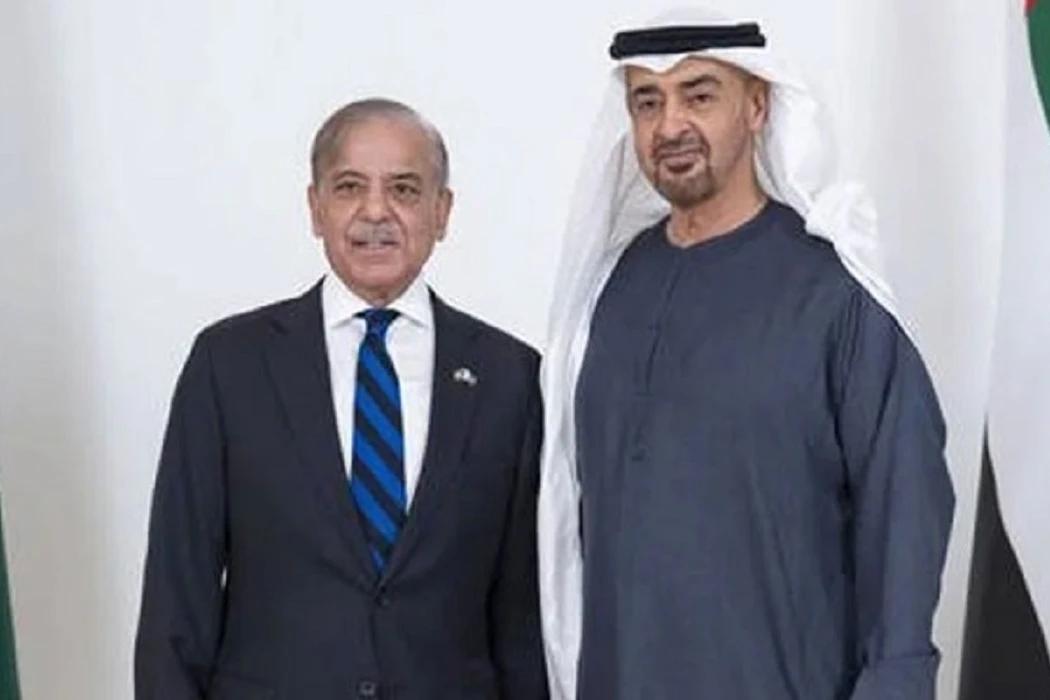President Joe Biden announced a ceasefire proposal to end Israel’s war in Gaza on Friday that he said was devised by Israel, urging Hamas to accept it and Israel not to renege. But what has followed in the days since is a series of conflicting statements fro…

Published 2 years ago on Jun 6th 2024, 12:00 pm
By Web Desk

President Joe Biden announced a ceasefire proposal to end Israel’s war in Gaza on Friday that he said was devised by Israel, urging Hamas to accept it and Israel not to renege. But what has followed in the days since is a series of conflicting statements from Israel and the Biden administration, leaving the state of the negotiations uncertain. The White House seems to think a deal is close. But Israeli officials have suggested that Biden misrepresented their proposal and that they won’t stop fighting until Hamas is completely destroyed. In a speech at the White House Friday, Biden articulated a three-phase ceasefire proposal: First, over six weeks, the withdrawal of Israeli forces from “all populated areas of Gaza” and a Palestinian prisoner exchange for certain hostages; then an “exchange for the release of all remaining living hostages, including male soldiers”; and finally, reconstruction of Gaza and the return of all hostage remains. According to Axios’s Barak Ravid, Biden has told the emir of Qatar, who is acting as a mediator in the negotiations, that Israel is ready to move forward with the terms of that proposal. However, in the last few days, Israel has contested Biden’s description of the proposal, with some leaders claiming the plan wasn’t an Israeli creation and that the terms in the proposal are unacceptable. Meanwhile, Hamas has received the proposal positively, though it has not made any firm commitments yet. Friday, Biden argued that Israel has essentially achieved its stated goal of destroying Hamas with its Gaza operation, saying that Hamas had been degraded to the point that it “no longer is capable of carrying out another October 7” and said that it was “time for this war to end.” This is the closest that Biden has come to publicly telling Israel, which counts the US as its closest ally, what its strategy in Gaza should be since the October 7 attack by Hamas. Under increasing domestic pressure to wrap up the war before the November presidential election, Biden has nonetheless said that Israel has not crossed his red line with its operation in Rafah, and that his administration remains supportive of Israel’s war — but his patience appears to be wearing thin. That’s one way of interpreting Biden’s Friday statement: It’s a calculated move — arguably his most forceful public gesture to date — to put the pressure on Israel to finally bring its war to a close. Meanwhile, Israeli Prime Minister Benjamin Netanyahu has his own domestic political calculations to make — and it’s not certain that they align with Biden’s public overtures to end the war, which has killed more than 36,000 Palestinians. All of this is taking place against a backdrop of mounting international pressure. Deal or no deal? Biden’s announcement of the ceasefire proposal has put renewed pressure on both Israel and Hamas to reach a deal. But recent posturing from Israeli and US officials has made it difficult to say whether a deal is actually within reach. On Saturday, Netanyahu’s office released a statement saying Israel would not end the war before it had achieved the “destruction of Hamas’s military and governing capabilities, the freeing of all hostages, and ensuring that Gaza no longer poses a threat to Israel.” “Israel will continue to insist these conditions are met before a permanent ceasefire is put in place,” it said. “The notion that Israel will agree to a permanent ceasefire before these conditions are fulfilled is a non-starter.” That signals that the Israelis don’t share Biden’s assessment that Hamas is sufficiently degraded and doesn’t seem to bode well for an imminent ceasefire. The Israeli government has held from the beginning of the war that it wants to see Hamas wiped out entirely — a goal that many security experts and even some Israeli government officials have identified as unrealistic. That said, even reports from Hamas itself indicate that the group has been significantly weakened. Hamas, for its part, has reacted favorably to the outline of the proposed deal. “The Islamic Resistance Movement Hamas views positively what was included in US President Joe Biden’s speech today,” it said in a statement Friday. “The movement affirms its position of readiness to deal positively and constructively with any proposal based on a permanent ceasefire, complete withdrawal from the Gaza Strip, reconstruction, the return of the displaced to all their places of residence, and the completion of a serious prisoner exchange deal if the occupation declares its explicit commitment to that.” But accepting the deal might not work to Netanyahu’s political advantage. He has reportedly indicated that he will not sign a hostage deal unless it polls well for him. Israeli voters would like to see Netanyahu replaced, but also support the continuation of the war in Gaza. Two of his right-wing ministers have also threatened to leave the coalition keeping Netanyahu in power if he signs the ceasefire deal outlined by Biden. Israeli officials have also reportedly questioned the accuracy of Biden’s public description of the ceasefire proposal, saying that he only described part of the proposal, that Israel had not agreed to a full withdrawal from Gaza, and that the proposal was not Israeli-led but instead put forth by mediators. All of this has left a lot of ambiguity about where Israel stands on a deal. White House national security communications adviser John Kirby sought to clear things up in a call with reporters on Monday. But he presented the proposal as if the Israelis had already accepted it, which they have yet to do publicly, adding to the confusion. “This is an Israeli proposal and the president characterized it accurately,” he said, adding that the administration had given the Israelis a heads-up that Biden would be speaking about it publicly on Friday. “The ball is in Hamas’s court.” Kirby said that negotiators are now awaiting a formal response from Hamas, which received the proposal on Thursday night. “Now's the time to move forward to the next stage,” he said. “There's an awful lot of work that has to be done to negotiate what phase two looks like.” If the Israelis walk back — or refuse to engage with — the proposal at this point, that would embarrass Biden, who has now expended substantial political capital in throwing his weight behind it publicly. But the administration has yet to indicate whether there would be other consequences for Israel if it lets this opportunity pass.
Field Marshal Asim Munir vows to deepen Pak-UAE partnership
- 30 منٹ قبل

High voltage clash: India defeat pakistan by 61 Runs, qualify for Super Eight
- 19 گھنٹے قبل

T20World Cup high voltage clash: India set 176 run target for Pakistan to win
- ایک دن قبل
Blast near Bannu police station leaves two dead, 17 wounded
- ایک گھنٹہ قبل

Field Marshal Syed Asim Munir meets global leaders during Germany visit
- ایک دن قبل

Gold prices plunge in Pakistan, global markets
- ایک گھنٹہ قبل
Multan hosts All Pakistan Long Range Shooting Championship
- ایک گھنٹہ قبل

Good Luck, Have Fun, Don’t Die is a rollicking parable about this moment in tech
- 12 گھنٹے قبل

SSWMB earns national recognition for clean Sindh initiative
- ایک دن قبل

PM Shehbaz leaves for Vienna, Austria on two-day official visit
- ایک دن قبل
FinMin claims losses of SOEs plummet by around Rs74b in three years
- ایک گھنٹہ قبل

DG ISPR visits various educational institutions of Lahore
- ایک دن قبل
You May Like
Trending












